 Even before Senator Barack Obama unequivocally denounced Reverend Jeremiah Wright as the loon he is, I was willing to take the senator’s word for the fact that his erstwhile pastor’s rantings about America, the Middle-East, the September 11 attacks, Louis Farrakhan, AIDS and white people do not reflect Mr. Obama’s own feelings.
Even before Senator Barack Obama unequivocally denounced Reverend Jeremiah Wright as the loon he is, I was willing to take the senator’s word for the fact that his erstwhile pastor’s rantings about America, the Middle-East, the September 11 attacks, Louis Farrakhan, AIDS and white people do not reflect Mr. Obama’s own feelings.
What pained me then, though, and still does, is the tragic subtext of Pastorgate – that the sort of rank idiocy that was spewed from the pulpit at Chicago’s Trinity Church may not be unusual in churches that cater to African-Americans. Senator Obama’s statement, back when he still sought to preserve some of his pastor’s dignity, was telling. “I can no more disown [Wright],” he said, “than I can disown the black community.” Did he mean to in some way equate the two?
Well, Wright certainly did. On his talk-show vanity tour, he boasted that “This is not an attack on Jeremiah Wright. It is an attack on the black church.” The same sentiment was expressed by Wright’s successor at the church, Reverend Otis Moss 3rd, who said: “You cannot caricature Rev. Wright. This is an attack on the collective black church.” The first assertion, although in a sense Mr. Moss may not have meant, is undoubtedly true; no caricature could convey Wright’s lunacy more vividly than the thing itself. As to the second, we can only hope it is not so.
That the Detroit NAACP – a branch of an organization traditionally empowered by mainstream civil rights advocates, including many religious men and women – saw fit to invite Wright to address its recent forum is not encouraging.
I spent my childhood in a racially mixed neighborhood; one of my best friends was a black boy a bit older than I. Junie and I would wrestle, play ball and ride our bikes on the rocky hills near where we lived in Baltimore. We had “kid to kid” conversations, too. He learned a lot about how frum Jews lived, and I learned things from him too. (Quite the critical thinker, he once knit his brow when we passed a local shul advertising the availability of High Holiday seats for purchase, and asked me incredulously, “You gotta PAY to PRAY?” It was a good point.)
Another black presence in my formative years was Lucille, our “cleaning lady.” She would come to my parents’ modest home once or twice a week and help my mother with ironing and housekeeping. We children, following our parents’ example, always treated Lucille with great respect, and, not to be cliché, she really was in many ways part of the family. My mother, oleho hasholom, would serve her lunch each day she came. And when Lucille grew older and unable to do any real work, my mother, mindful of our housekeeper’s financial neediness, made a point of continuing her “employment,” having her come over and wipe off a counter or two, so that she could be given her wages – and lunch, of course – as compensation, not charity.
Then there was Dhanna, the librarian in Providence, where my wife and I raised our children, who was so kind to them during their frequent visits to the public library, always smiling at them, helping them find what they were looking for and proudly placing the artwork they produced for her on her desk for all to see. And Desi, our own young daughters’ friend from those years, who became quite conversant with the laws of kashrus and Shabbos.
To be sure, I have had unpleasant encounters with blacks. Like in my youth, when a group of boys who had asked my yeshiva classmates and me to join our baseball game, once at bat, decided to turn the Louisville Sluggers on us. Or the “Heil Hitler” that one teenager delighted in shouting at my father, shlit”a, and me when we walked to shul. Even today, I come across the occasional anti-Semite of color.
But more than the occasional pale-faced one too. There are good and bad people in every population. Mindful of the Talmudic imperative to judge “all men favorably” (Avos, 1:6), I have never measured any human being by any yardstick other than his own words or deeds. And my wife and I always sought – and I think successfully – to instill that attitude in our children.
Mere months ago, I would have imagined that preachers in black churches speak to their flocks about serving G-d and living moral lives, about humility, self-respect and love. And maybe most do. But the current presidential campaign’s sideshow of “Wright stuff” has been sadly educational. If even a minority of black church leaders are of the Trinity mold (both the word’s senses intended), feeding their congregants the sweet poison of suspicion and hatred, the dream of a truly color-blind society will have been set back a century – even if an African-American is elected to the very highest office in the land.
And, of course, as elsewhere in the world, the general anti-American and anti-white ravings of black religious leaders like Wright and Farrakhan exhibit an undercurrent of anti-Israel sentiment – today’s “respectable” proxy for anti-Semitism. The latter famously sneered at Israel’s “dirty religion” (he meant Zionism, he later clarified helpfully). And the former, pairing Israel with South Africa, charged that both countries “worked on an ethnic bomb that killed Blacks and Arabs.”
I can’t imagine Junie or Dhanna or Desi sitting through such tripe. What anguishes me is that, for all I know, their children or grandchildren may be.
© 2008 AM ECHAD RESOURCES
[Rabbi Shafran is director of public affairs for Agudath Israel of America.]


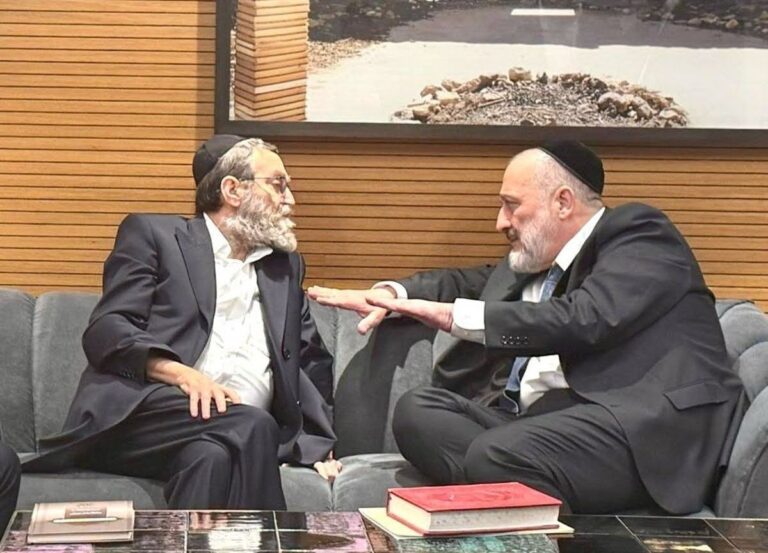
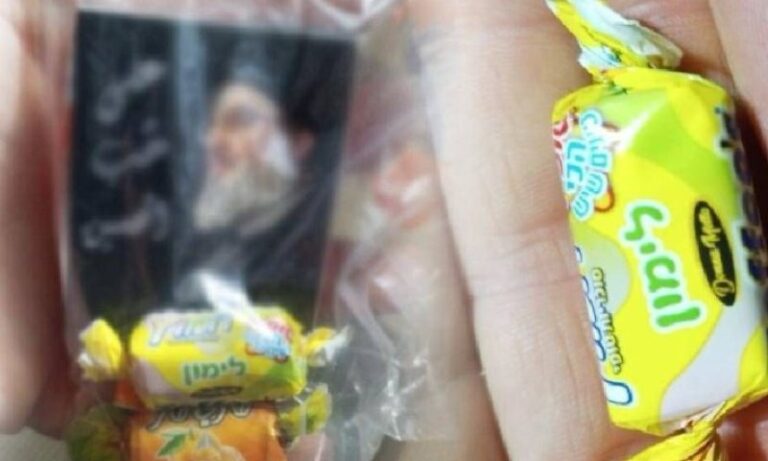

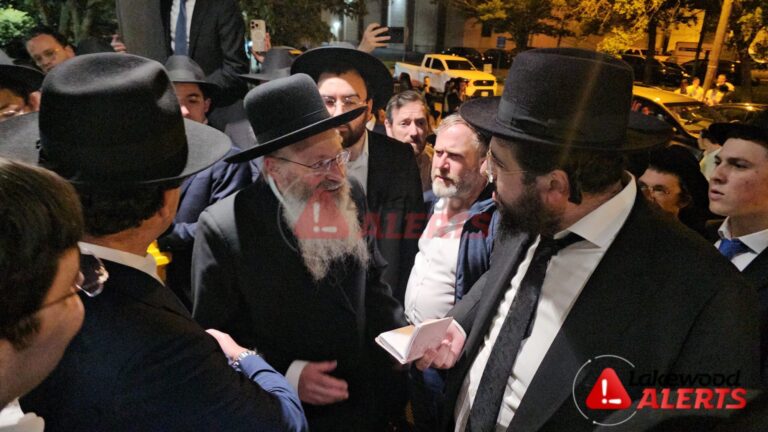



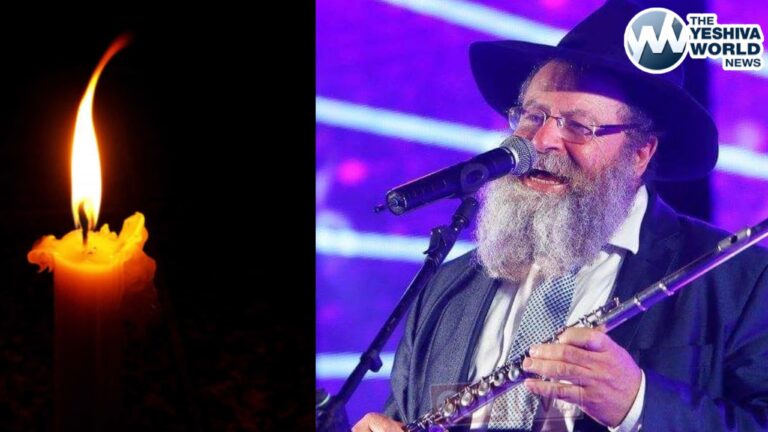
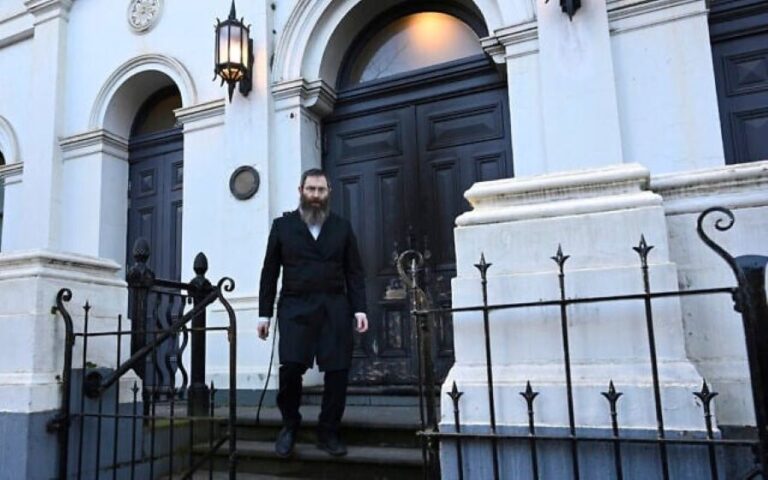
9 Responses
I have always been an avid reader of Rav Shafran’s shlita. He consistently expressed torah-true ideas and values in a clear and forceful manner.
With that in mind, I am disappointed with the above piecee.
If the Moetzes Gedolai haTorah is the heart and mind of the klal, then the Agudah leadership is its voice. The ideas expressed in this column, although beautifully wrtitten, sound more like words to have been found, l’havdil, in a reform or conservtive column.
This week wee will IYH bl’i ayi horah, read parshas Kedoshim. One of the fundamental concepts of kedusha is separating klal yisroel from the hashpa’a of l’havdil and l’havdil of the umos ha’alom. With that in mind, how can Rav Shafran shlita allow himself to write that ‘ one of my best friends was …’ Such a sentence sends a shiver up the spine ! Is this what we want our children to hear ? Is such a sentence sanctioned by the Moetzes Gedolai haTorah. ? Is this an expression of daas Torah ? I hope and daven that this was either a guzma or an error, and am confident that going forward, Rav Shafran shlita will continue to serve the Gerdolim by expressing their feelings, their beliefs, their deep and true insights, in a way that will help us all grow in ruchniyus. A guten erev Shabbos !
The previous poster is probably one of those who cried and ranted against R’ Yaakov Kaminetsky’s books where he described his human trait of writing nice letters to his wife. Meshuganneh! g’dolim were once children too and they are only human. They live, they love, they like a good piece of Kugel, a shot of schnapps. But they all things to elevate the physical to a spiritual.
So R’Shafran was once a kid and had a good black friend. Only makes me relate to him all the more. Onkelos was a Ger, he used to eat trief, engage in znus, warfare, whatever. So maybe you should stop reading Targum. get a life, pleeeease!
R’ Shafran is too kind in believing that anti-semitism does not permeate as a strong undercurrent throughout the black community.
minols (#1) – I hope you are joking!!!
To #2: I was not chas v’shalom criticizing Rav Shafran shlita on any personal level. What I was saying is that even if Rav Shafran shlita had different kinds of friends when he was young,but that is no something that should be put into print for our children to see and assume that it is kosher v’yoshor.
If it happens that one has such a friend, so it happens but let us not announce it to our precious n’shamos engaged in Torah and yiras Shomoyim.
On a second note, Rav Shafran shlita says that ‘…who was so kind to them (our children)during their frequent visits to the public library, always smiling at them, helping them
ind what they were looking for’ . Is this implying that it is fine to read goyishe books ? Is this implying that the librarian was the mashgiach on what they read ? I do not know how many years ago the Shafran family lived in golus outside of NY. Books were not as bad then as today, but they were still written by people with timtum halev, by people who did not turn to Gedolai Yisroel to insure that all words were written and all pictures drawn al pi taharas hakodesh.
I want to judge everyone l’kav ha zachus. I am sure that any statement that leaves the Agudah has been carefully reviewed by the G’dolim. If so, what happened here ? I do not know, but my bitachon in daas Taroh is not shaken, and I hope no one else’s is shaken either.
to #1 who was rabbeinu hakodosh’s(reb yide hanosi) good friend? who didnt have a —-friend when was child and was neighbor with —-…how many gedolim grew up in lower east side and had…..eich gay nit arein tzu es is gut ober nit but you make a fuss and mach avek agudah because one spokesman had a —- friend when he was child or a little bit older..the rest what he writes..can you explain what is the problem…as far a we know we all treat our cleaning help with respect , yes there are exceptions….so can you explain…me am stumped…the letter is zu di nist bnei yisroel nit tzu unze, h’hamaskil yovin..
You refer to the “golus outside of NY.” Do you mean to imply that New Yorkers don’t, or didn’t live in golus? As an aside, a bit earlier than R. Shafran’s time, Baltimore was “the Yerushalayim of America.”
As far as reading goyishe books, I could say that that was then, this is now. I could also say that over Shabbos I just had to put down a book written by a very respectable Yiddishe person as the book had no redeeming social value.
I am deeply saddened at what I have read in the comments here.
First of all, the attitude that we must forge a hatred between us and the goyim is the result of a more and more insular society with little exposure to them. Clearly, these writers have forgotten that every non-jew is indeed a tzelem elokim and we have an achrayus to be meir the world for them with our actions.
Second of all the idea that we cannot appreciate those around us is plain wrong. We benefit from so much chesed in the US of non-jews blacks and white salike it is most unbecoming and dishonest o us to forget this reality.
Finally, we shoudl all remember that anyone can read YWN and assume that what they read is the reality of the yeshiva world.
Having had the dubious honor of having to endure a Christian demonination for several years, as well as Reform and Conservative institutions thereafter I’ve got a bit more bad news for Rabbi Shafron. The ONLY religious expression I have ever known that NEVER bases itself on hate, and whose “professionals” — the Roshei Yeshiva and congregational rabbis — NEVER give sermons based on hate. It took me years after I became frum to get used to that. It’s only very recently that I’ve actually begun to appreciate it. Rev. Wright represents a lot more than the minority of the black community that Rabbi Shafron thinks. He actually represents a pretty good cross section of the non-Torah world in general.